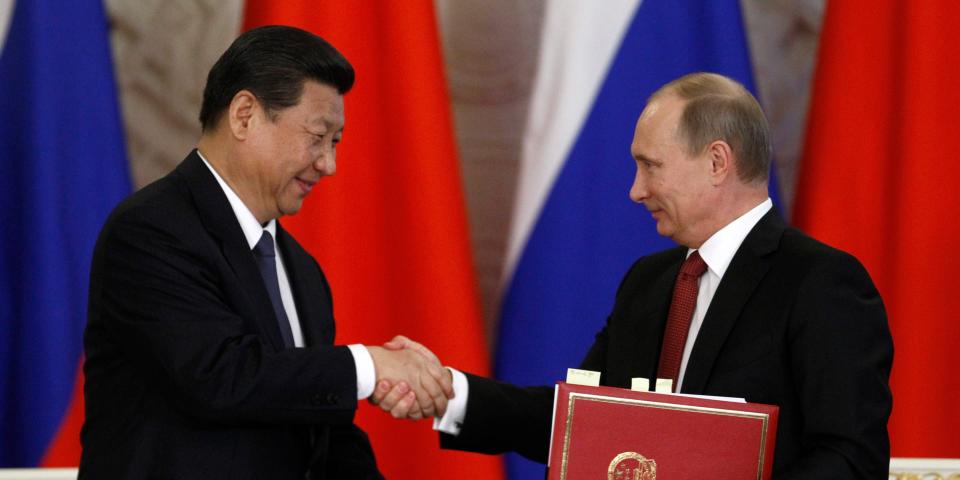Russia's $45 billion stash of Chinese yuan is helping Moscow weather massive plunge in energy revenues

Russia has a $45 billion stash of Chinese yuan that could help it weather sanctions, per Bloomberg.
The nation could sell yuan reserves to make up for losses in its oil revenue.
Moscow has sought to deepen ties with Beijing amid a barrage of western sanctions.
Russia has a $45 billion stash of Chinese yuan that is helping Moscow weather a massive plunge in its energy revenues as western sanctions batter its economy.
Selling its yuan reserves will help Russia cover its losses for the next three years, according to an analysis from Bloomberg Economics. Citigroup estimates that it will cover losses for a slightly shorter period of about two and a half years.
How long the reserves will last will depend on the fluctuations of the price of Russian oil, which is one of Russia's largest commodity exports. Its flagship Urals crude blend is now trading around $50 a barrel – a third of what it was last year, Bloomberg reported. If Urals falls further to the $40-$50 range, yuan sales per month may need to triple. If it falls to $25, Russia may sell its entire yuan stash this year.
That comes after the latest round of western sanctions, including the European Union ban on Russian oil and $60 price cap, which prevents Russia from using western shipping and insurance services to sell its crude unless it's below the price level.
The measures have severe crimped Russia's oil revenue, which could spell trouble for the nation in the long-term, economists warn. Russia's central bank called the oil price cap and EU ban "economic shocks" to its financial system, and the nation's oil revenue fell $15 million in the last week of 2022 alone, with just a few buyers of Russian crude left.
The nation's budget deficit also hit a new record of 3.9 trillion rubles, or $56 billion in December. If it keeps spending at this level, Urals crude would need to be sold at $90 a barrel this year, or nearly double the current price, in order to breakeven, Bloomberg estimated.
Putin has emphasized the resilience of Russia's economy and said it would expand partnerships with allies like China and India to make up for lost trade. The nation has leaned heavily on China in particular, and the yuan is the only world currency that Russia can use in the foreign-exchange market after western sanctions cut off access to reserves of dollars and euros.
Read the original article on Business Insider

 Yahoo News
Yahoo News 